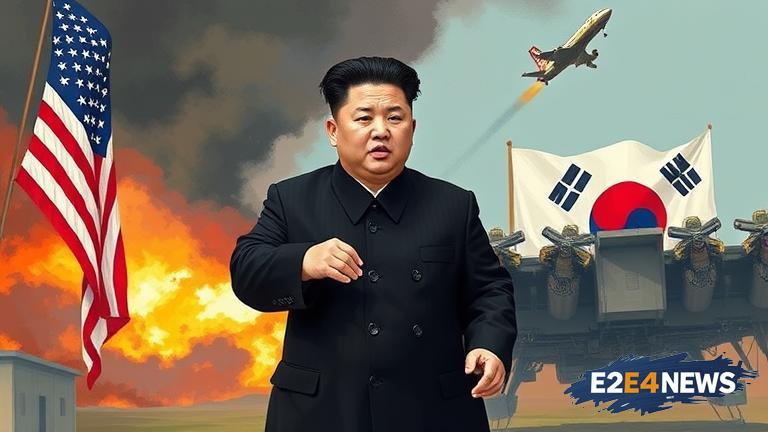The Democratic People’s Republic of Korea (DPRK) has issued a statement denouncing the joint military exercises between the United States and South Korea, which began on August 16. The drills, known as the Ulchi Freedom Guardian, involve thousands of troops from both countries and are aimed at enhancing their military cooperation and readiness. However, the DPRK views these exercises as a provocation and a threat to regional peace and stability. The North Korean government has long been opposed to the joint military drills, which it sees as a rehearsal for an invasion. The DPRK has warned that the exercises will only serve to increase tensions on the Korean Peninsula and undermine efforts to improve relations between the two Koreas. The US and South Korea have defended the drills, saying they are necessary to maintain their military readiness and deter potential aggression from the North. The exercises come at a time of heightened tensions between the US and the DPRK, with the two countries engaged in a war of words over the North’s nuclear and missile programs. The US has imposed tough sanctions on the DPRK in an effort to curb its nuclear ambitions, while the North has responded with a series of missile tests and threats to attack the US and its allies. The situation on the Korean Peninsula remains volatile, with the US and its allies on high alert for any signs of aggression from the North. The joint military drills are seen as a key component of the US-South Korea alliance, which has been in place for decades. The exercises are designed to test the military’s ability to respond to a range of scenarios, including a potential invasion by the North. The US and South Korea have also been working to enhance their military cooperation, including through the deployment of advanced military equipment and technology. Despite the tensions, there are still hopes for a peaceful resolution to the crisis. The US and the DPRK have been engaged in diplomatic efforts, including through the use of back channels and intermediaries. However, the path to a peaceful resolution remains uncertain, with the two sides still far apart on key issues. The international community is watching the situation closely, with many countries calling for restraint and a return to dialogue. The United Nations has also been involved in efforts to resolve the crisis, with the Security Council imposing tough sanctions on the DPRK in response to its nuclear and missile tests. The situation on the Korean Peninsula is complex and multifaceted, with a range of historical, cultural, and economic factors at play. The US and the DPRK have a long and complicated history, with the two countries still technically at war after the Korean War ended in 1953. The DPRK has long been isolated from the rest of the world, with the US and its allies imposing tough sanctions and restrictions on the country. However, in recent years, there have been signs of a thaw in relations, including through the use of diplomatic channels and cultural exchanges. The joint military drills are seen as a key test of the US-South Korea alliance, which has been a cornerstone of regional security for decades. The exercises are also seen as a demonstration of the US commitment to its allies in the region, including Japan and Australia. The situation on the Korean Peninsula remains uncertain, with the potential for miscalculation and escalation still high. However, there are still hopes for a peaceful resolution to the crisis, with the US and the DPRK engaged in diplomatic efforts and the international community calling for restraint and dialogue.
